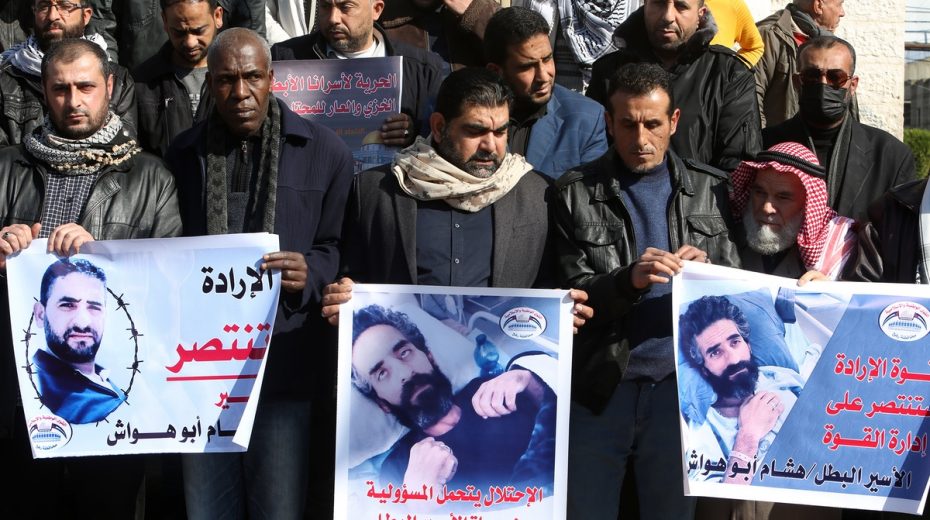Should Israel Provide Medical Care to Its Enemies?
Israel Today
January 5, 2-22
 Palestinians demonstrate in support of hunger-striking jihadist Hisham Abu Hawash, who is being treated in an Israeli hospital
Palestinians demonstrate in support of hunger-striking jihadist Hisham Abu Hawash, who is being treated in an Israeli hospital
The saga of Palestinian hunger-striker Hisham Abu Hawash came to an end this week when Israel decided not to renew his detention. But not before right-wing and Arab members of Knesset got into a shouting match while visiting the prisoner at a hospital near Tel Aviv.
Abu Hawash is a member of the Palestinian Islamic Jihad who was captured in October 2020 for his involvement in terrorist activities against Israelis. However, no formal charges were ever brought against him, so 141 days ago, Abu Hawash embarked on a hunger strike aimed at eliciting international pressure to secure his release.
The scheme worked. Israel this week decided that it will not renew Abu Hawash’s detention when it expires on February 26.
With so many eyeballs, both local and foreign, fixated on Abu Hawash, members of Knesset who are always keen to get in front of a camera visited the Palestinian terrorist following word of his impending release.
As he walked into the hospital, MK Ayman Odeh, head of the Joint Arab List, crowed: “Victory for the Palestinian people!”
Accompanying Odeh was MK Itamar Ben Gvir of the far-right party Religious Zionism, who retorted: “You’re a terrorist!”
Ben Gvir added that hostiles like Abu Hawash shouldn’t be captured, thus giving them a chance to leech from the Israeli healthcare system and gain international attention. Rather, “they should be eliminated in a targeted strike.”
This has actually been a point of contention in Israel for many years.
Often following deadly terrorist attacks, the wounded Palestinian perpetrators are treated alongside their victims in Israeli hospitals. When it comes to providing life-saving medical care, Israel as a matter of policy does not discriminate, even under such difficult circumstances.
For some Israelis, that doesn’t sit right. While others insist that loving one’s enemies is an important part of Israel’s calling to be a light to the nations.
No comments:
Post a Comment